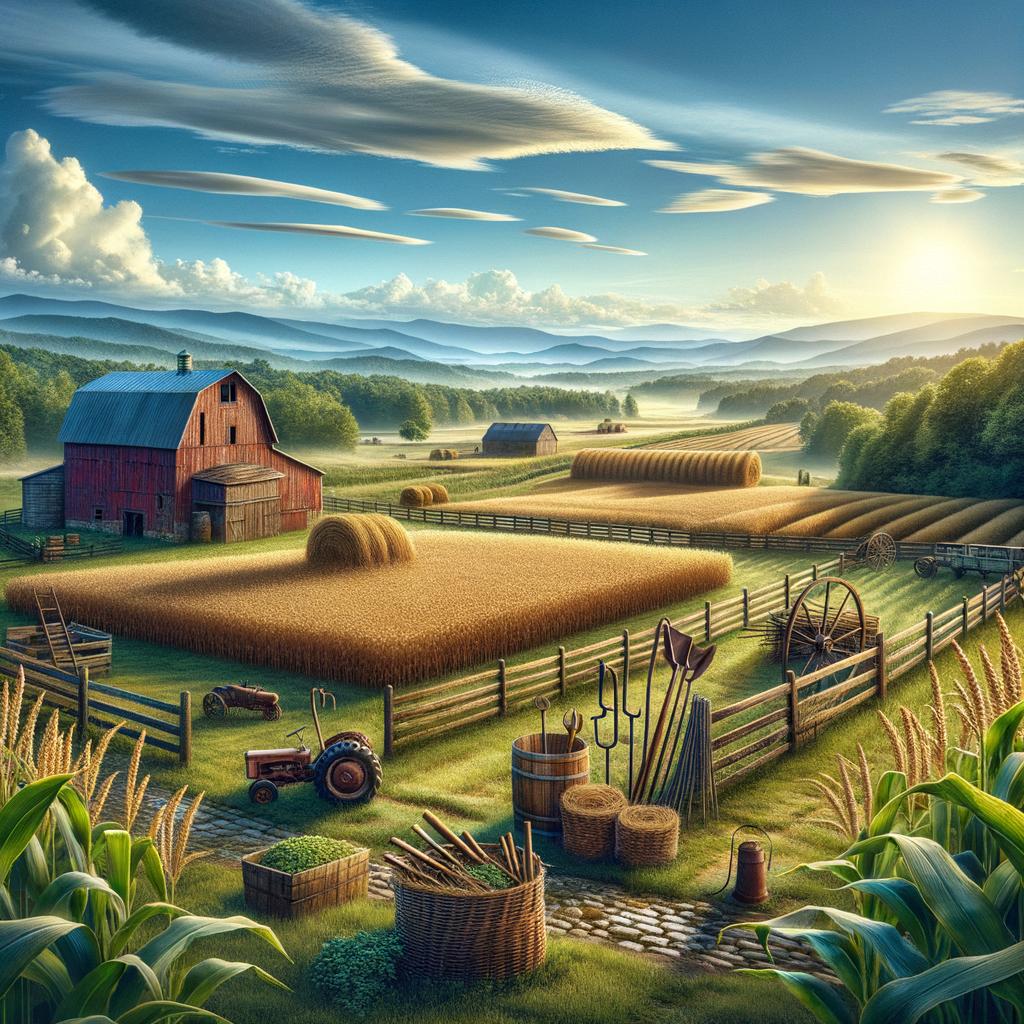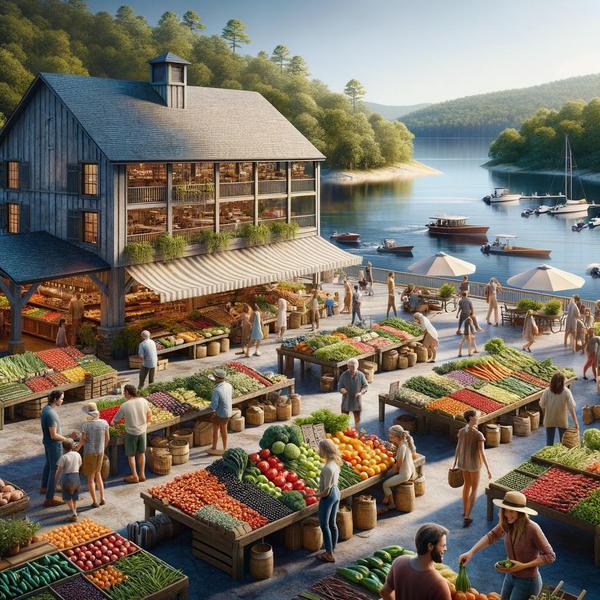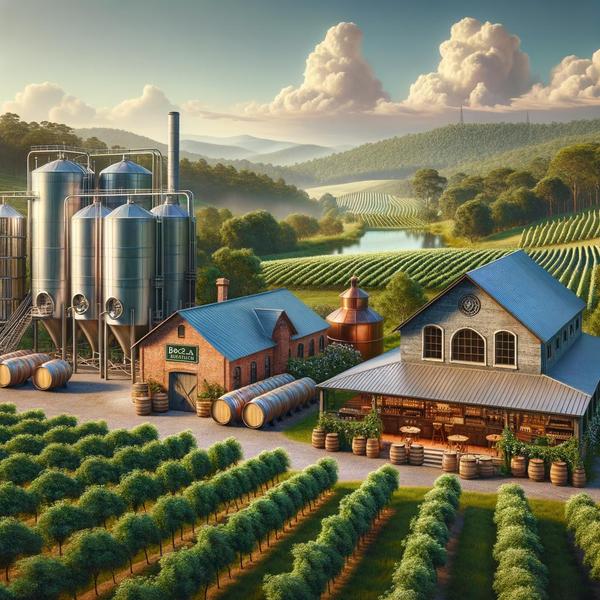Dacula's Role in Georgia's Agricultural Heritage

Dacula's Role in Georgia's Agricultural Heritage
Nestled in the northeastern quadrant of Georgia lies the charming town of Dacula, a locale that boasts a rich tapestry woven from the threads of its agricultural legacy. For centuries, this community has played a pivotal role in the development and continuation of Georgia's agrarian culture, contributing significantly to the state's economy and the preservation of its unique farming heritage. This article delves into the multifaceted role that Dacula plays in Georgia's agricultural history, exploring its origins, innovations, and the community's continued commitment to maintaining these agricultural traditions.
Historical Roots of Dacula's Agriculture
Dacula's agricultural roots reach deep into the past, dating back to when Native American tribes first utilized the fertile land for subsistence farming. As European settlers arrived, they recognized the potential of the lush landscapes and established farms that would set the foundation for the agricultural prowess that Dacula is known for today. The introduction of cash crops, such as cotton and tobacco in the 18th and 19th centuries, positions Dacula as a key player in the state's economy during that era.
19th Century Innovations and Development
The 19th century witnessed significant developments in agricultural practices and technology within Dacula. Innovations such as the cotton gin revolutionized production, leading to economic booms that elevated the entire region. Farmers in Dacula were early adopters of these new techniques, demonstrating an ability to merge traditional practices with emerging technologies. This period also saw community efforts in crop diversification, which included fruits, vegetables, and livestock, underscoring Dacula's adaptability and forward-thinking approach in the agricultural sector.
The Community Impact and Societal Contributions
Beyond its economic impact, Dacula has played a crucial societal role through agriculture. Farms became the nucleus of community life, with local gatherings, markets, and festivals often centered around the harvest seasons. These events not only celebrated the bounty of the land but also strengthened communal bonds, fostering a culture of cooperation and unity that endures. Agricultural societies and co-operatives started forming, providing support and knowledge sharing among farmers, further cementing Dacula's importance in the agricultural heritage of Georgia.
Modern-Day Agriculture in Dacula
In contemporary times, Dacula continues to honor its agricultural heritage while adapting to the modern demands of farming. The town's farmers have embraced sustainable practices, organic farming, and the use of technology to enhance productivity. There's a strong emphasis on educating future generations about the importance of agriculture through community programs and educational initiatives. These efforts ensure that Dacula remains at the forefront of innovative agriculture, contributing to a sustainable future while respecting the traditions of the past.
Preserving Heritage: Museums and Historical Societies
Preserving this rich agricultural heritage is of utmost importance to the residents of Dacula. Museums and historical societies play a vital role in this endeavor. The Gwinnett County Historical Society, along with local institutions, prominently highlights agricultural contributions in their exhibitions and programs. These organizations strive to educate the public about the historical significance of Dacula's agriculture, ensuring that this heritage is not lost to time and continues to inspire future generations.
Economic Contributions
The economic implications of agriculture in Dacula extend far beyond the boundaries of the town. As part of Gwinnett County, Dacula contributes to a regional agricultural economy that supports a myriad of related industries, such as food production, machinery, and transportation. By supporting local businesses and encouraging agricultural tourism, Dacula helps to stimulate economic growth and diversification, reinforcing its pivotal role in Georgia's overall economic framework.
Challenges and Adaptations
Despite its successes, Dacula's agricultural heritage is not without challenges. Issues such as urban sprawl, climate change, and market volatility continuously test the resilience of local agriculture. However, the community has shown remarkable adaptability, employing measures such as crop rotation, rainwater harvesting, and community-supported agriculture (CSA) initiatives. These strategies not only mitigate risks but also empower the community to continue its proud agricultural tradition.
Vision for the Future
Looking towards the future, Dacula aims to capitalize on its deep agricultural roots while innovating for sustainability and growth. There's a strong focus on increasing agri-tourism, promoting locally grown produce, and expanding educational outreach programs to both inspire and educate the next generation of farmers and agriculturists. By maintaining a balance between tradition and innovation, Dacula envisions a prosperous future where its agricultural heritage remains a cornerstone of its identity and economy.
FAQ Section
What are the main agricultural products of Dacula?
Dacula primarily produces crops such as corn, soybeans, and wheat, alongside a variety of fruits and vegetables.
How does Dacula contribute to Georgia's agricultural economy?
Dacula contributes through crop production, livestock farming, and supporting local businesses linked to agriculture.
What sustainable practices are used in Dacula's agriculture?
Farmers in Dacula use practices such as crop rotation, organic farming, and water conservation techniques to promote sustainability.
How does Dacula preserve its agricultural heritage?
Through museums, educational programs, and community events that highlight and celebrate its agricultural history.
What role does the community play in Dacula's agricultural sector?
The community supports agriculture through cooperative societies, local markets, and educational initiatives.
In conclusion, Dacula stands as a testament to the enduring importance of agriculture in shaping societies and economies. By exploring its rich agricultural heritage, we gain insights into how communities like Dacula have not only contributed to Georgia's agricultural legacy but also how they are pivotal in shaping future agricultural landscapes. With a vibrant past and an optimistic outlook, Dacula’s role in Georgia’s agricultural narrative continues to grow in both significance and scope.
Categories
- All Blogs (590)
- Achasta Golf Community (76)
- Cleveland, GA (43)
- Dacula, GA (43)
- Dahlonega GA (113)
- Dawsonville, GA (44)
- Gainesville, GA (45)
- Gold Peach Realty (5)
- Helen, GA (44)
- Home Buying Tips (17)
- Home Décor And Interior Design (7)
- Home Improvement Tips (15)
- Home Selling Tips (20)
- Homes For Sale (45)
- Lake Lanier, GA (69)
- Local Events (13)
- Local Guides (17)
- Mortgage And Finance Tips (23)
- North Georgia (11)
Recent Posts










GET MORE INFORMATION

